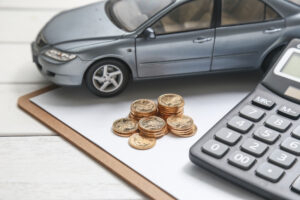Buying a new vehicle is a huge financial commitment so shopping around for the best deal is imperative. Very often pre-owned cars, even those with low mileage, can be found for quite a few rands less than their new car equivalents, but there are a few questions you need to ask before signing on the dotted line.
Who am I buying from?
Who you buy a pre-owned vehicle from is by far the most important consideration for any car buyer? While many websites advertise cars that are being sold by private sellers, buying a pre-owned vehicle in this manner has its risks. Vehicles sold privately or through stand-alone dealerships are largely voetstoots.
TIP: Be sure to do research about sellers by having a look at their website, social pages, and Google ratings.
What should I buy?
Filters on websites help shoppers narrow down the search according to the parameters that are important to each individual buyer such as budget, model, specification, model year, or mileage, and create a shortlist of vehicles worth viewing in person.
TIP: The age and mileage of pre-owned vehicles will affect the price but anomalies to watch out for include cars with high mileage in comparison to their age. A good average is 20,000 – 25,000km per year.
Consumers often browse for choices online but affirm their decision from the touch and feel moment
– Corné Venter, CEO of Motus Retail & Rental SA
Is the vehicle as advertised?
Visiting the dealerships on your shortlist allows you to physically inspect the facility and the vehicle, and to ask more specific questions.
“Consumers often browse for choices online but affirm their decision from the touch and feel moment. Fortunately, when shopping on our platform, whatever consumers select is exactly what they will get upon delivery,” said Corné Venter, CEO of Motus Retail & Rental SA
Is the warranty and service plan still valid?
Warranty and service plans are time and mileage-based and expire when one of those parameters is reached.
TIP: If you are considering a vehicle without a service plan, you need to be more aware of the technical condition of the vehicle or have it checked by an independent expert.
Does the car have a full-service history?
A full-service history means that the car was well maintained and will have a direct bearing on the warranty of the vehicle.
TIP: A service history should be a serious consideration for any buyer as it can eliminate surprise costs in the future.
Has the car been in any accidents?
An accident history that includes a minor bumper bashing that has been correctly repaired is nothing to worry about, but buyers should lookout for any signs of serious damage during the car’s life.
TIP: An easy way to spot a repaired vehicle is via uneven body panel gaps and alignment.
Can I take it for a test drive?
A buyer should insist on taking the car for a test drive. This will allow you to get a feel for the vehicle, check that everything works as it should, and allow you to identify any apparent issues.
TIP: Turn off the radio to be able to hear any strange noises and take note if the vehicle veers to either side.
Have any major components been replaced?
If major components like the windscreen, tyres, or brakes have been recently replaced, this could save you extra money in the medium term. Conversely, if any of these items will need replacing soon, that could mean extra costs on the horizon.
TIP: Take note of the tyre tread as replacing tyres can be a costly exercise.
Source: Motus






